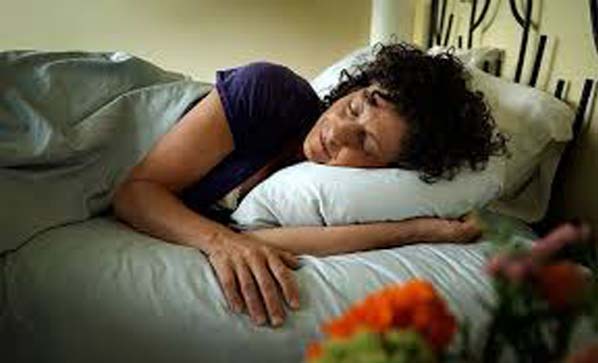
An Indian herb called Ashwagandha contains an antioxidant that can induce sleep. Triethylene glycol (TEG) is a bioactive compound found in Ashwagandha that induces sleep. Ashwagandha could be a safe plant-based therapy for sleep disorders.
A research team at a sleep institute in Japan found that an active component in an Indian herb called ‘Ashwagandha’ can induce sleep.
Ashwagandha (Withania somnifera) is an important herb in Ayurveda. The Latin word somnifera means ‘sleep-inducing.’ Ashwagandha has been recommended for good sleep. Even though studies have proved that Ashwagandha promotes sleep, the active compound that induces sleep remains unknown.
A research team lead by Mahesh K. Kaushik and Yoshihiro Urade of the International Institute for Integrative Sleep Medicine (WPI-IIIS), University of Tsukuba, investigated the effects of bioactive compounds in Ashwagandha in the context of sleep, in mice. The team recorded electroencephalogram and electromyography to study the sleep quality.
Bioactive component in Ashwagandha Promotes Sleep
The research team investigated the effects of two types of Ashwangandha extract on sleep. The first one was the water extract of Ashwagandha leaf rich in triethylene glycol (TEG). TEG promoted non-rapid eye movement (NREM) sleep and slightly changed rapid eye movement (REM). The second one was the alcoholic extract containing active withanolides, which had no effect on sleep.
The findings showed that sleep induced by TEG was similar to normal sleep. Thus the research team concluded that TEG is the active component in Ashwagandha that induces sound sleep. This study could revolutionize the natural plant-based therapies for insomnia and sleep-related disorders.
Sleeplessness is a common complaint among the middle-aged population. Insomnia is one of the most common neuropsychiatric disorders, which affects 10 to 15 percent of the general population and 30 to 60 percent in the elderly population. Insomnia is linked to obesity, cardiovascular diseases, depression and anxiety.
The clinical application of TEG to treat insomnia is still not approved because the TEG is also used for industrial purpose and very little is known about its applicability and toxicity. Further research is needed to confirm the safety of TEG.
Currently, the research team is evaluating the effect of TEG administration on stress. Ashwagandha is known to reduce stress and correct the imbalance of various nervous systems.
Source: Medindia

